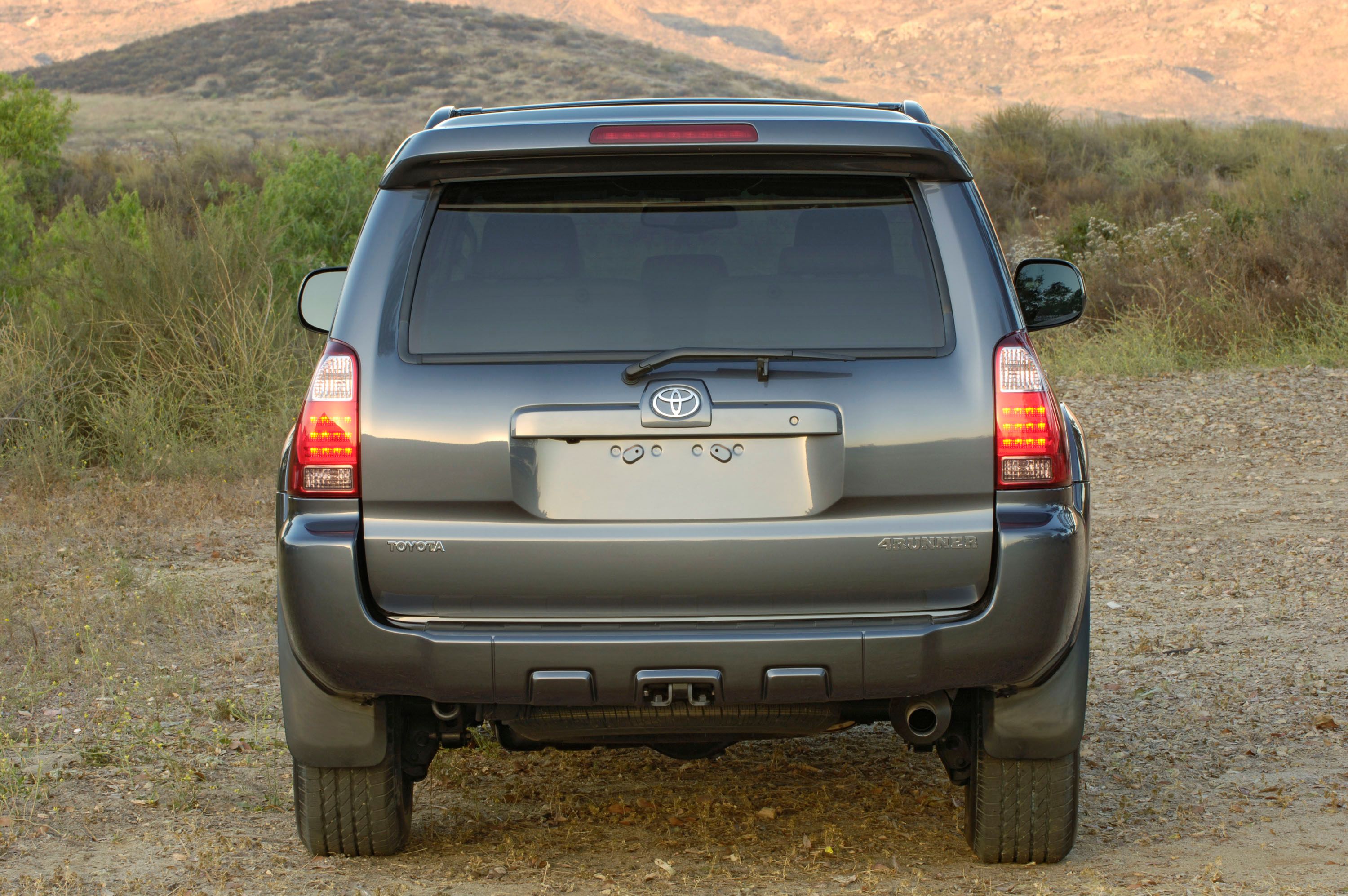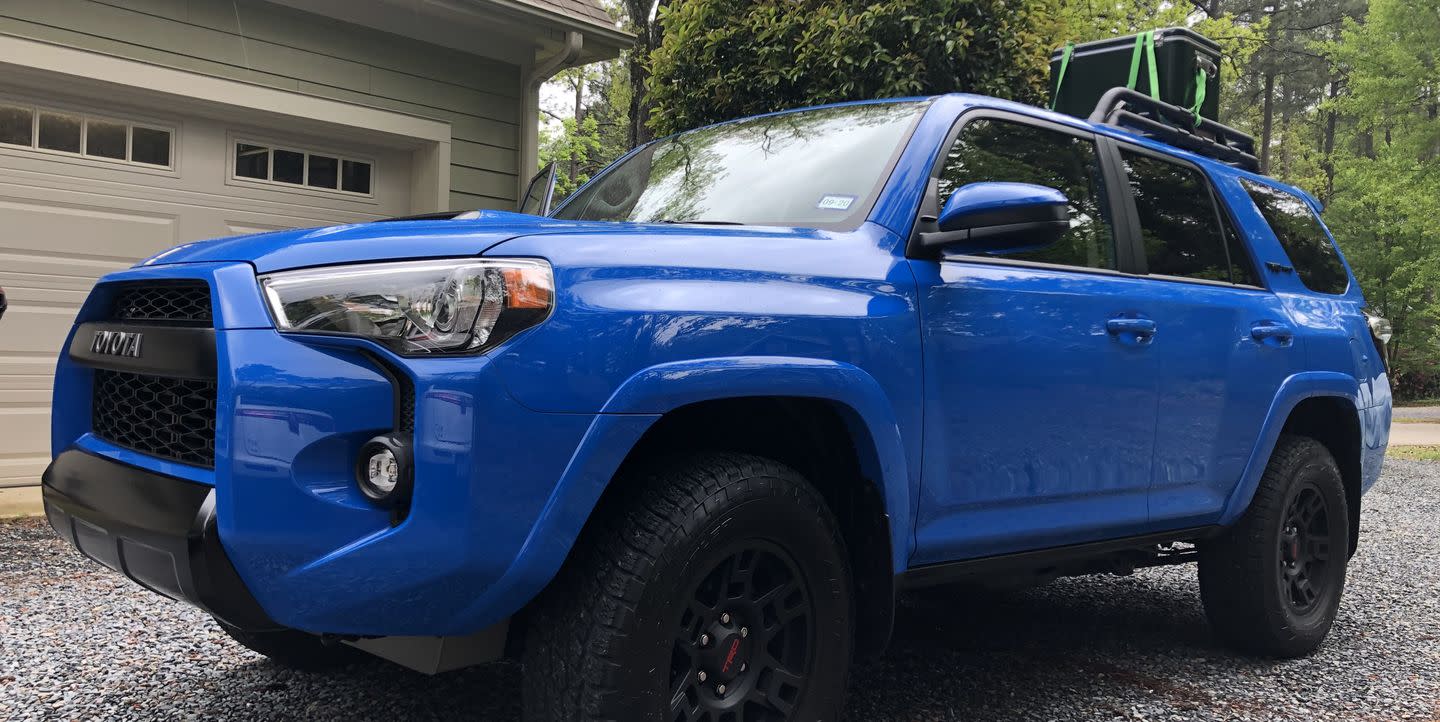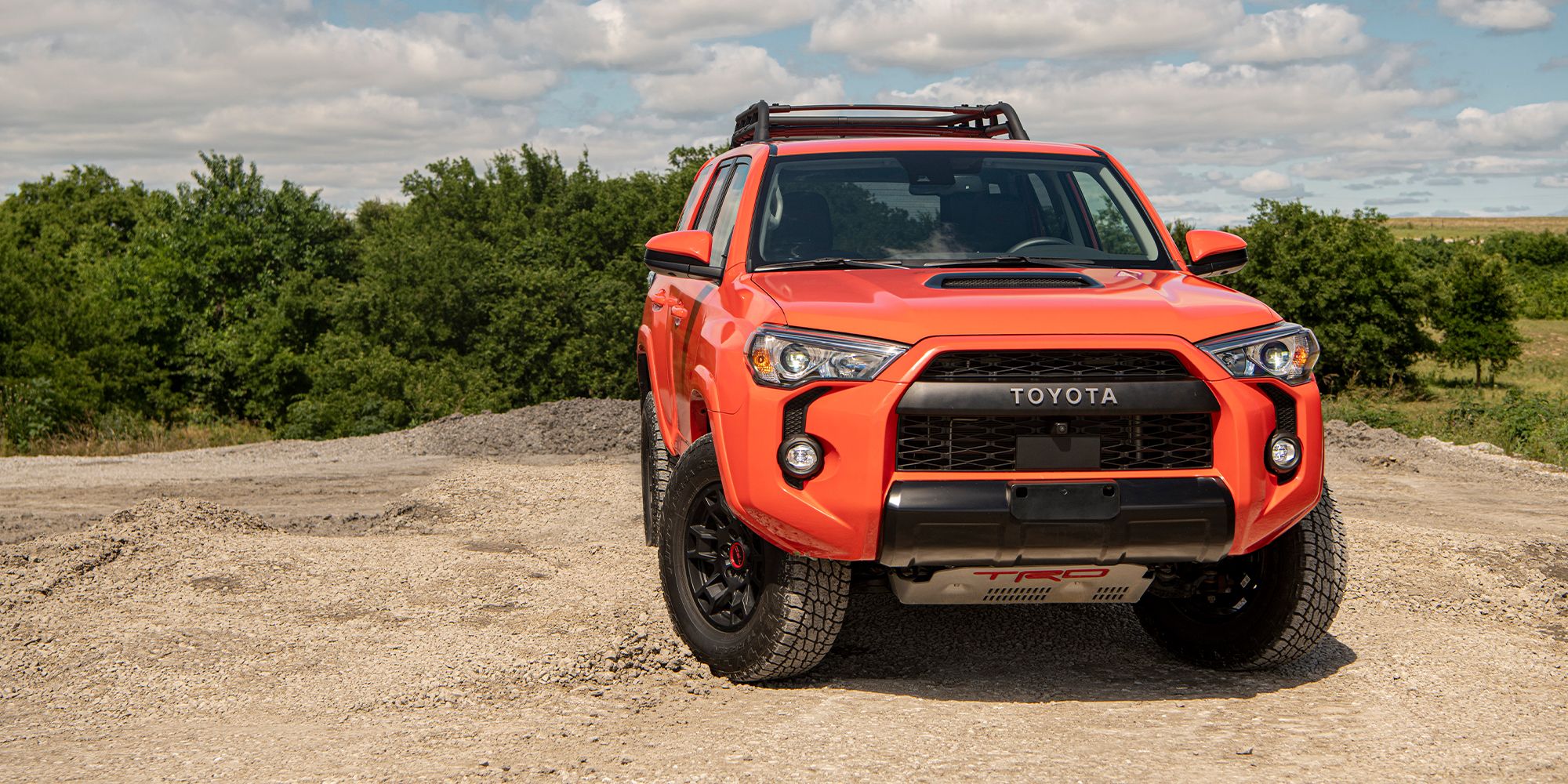Understanding The Significance Of Curb Weight In The Toyota 4Runner
Understanding the Significance of Curb Weight in the Toyota 4Runner
Related Articles: Understanding the Significance of Curb Weight in the Toyota 4Runner
Introduction
With enthusiasm, let’s navigate through the intriguing topic related to Understanding the Significance of Curb Weight in the Toyota 4Runner. Let’s weave interesting information and offer fresh perspectives to the readers.
Table of Content
Understanding the Significance of Curb Weight in the Toyota 4Runner

The Toyota 4Runner, a stalwart in the SUV segment, is renowned for its ruggedness, off-road capability, and spacious interior. However, an often overlooked factor that significantly impacts its performance and handling is its curb weight. This article delves into the nuances of curb weight in the Toyota 4Runner, exploring its significance, variations across model years, and the factors that contribute to its overall value.
What is Curb Weight?
Curb weight refers to the weight of a vehicle as it sits on the ground, fully equipped, including all fluids, a full tank of fuel, and standard equipment. It does not include the weight of passengers or cargo. Understanding curb weight is crucial for various reasons, particularly for an off-road vehicle like the 4Runner.
Impact of Curb Weight on 4Runner Performance:
- Fuel Efficiency: A heavier vehicle requires more power to accelerate and maintain speed, leading to reduced fuel economy. A lighter 4Runner, with a lower curb weight, will generally exhibit better fuel efficiency.
- Acceleration and Handling: A lower curb weight translates to quicker acceleration and improved responsiveness. The 4Runner’s handling and agility are also enhanced by a lighter weight, allowing for more nimble maneuvering both on and off-road.
- Off-Road Capability: While a heavier 4Runner may provide a more stable platform on uneven terrain, it can also compromise ground clearance and maneuverability in tight spaces. A lighter weight allows for better articulation and obstacle clearance, enhancing the 4Runner’s off-road prowess.
- Tire Wear: A heavier vehicle puts increased stress on tires, leading to accelerated wear. This is particularly relevant for off-road driving where tires are subjected to more demanding conditions.
Curb Weight Variations Across Toyota 4Runner Model Years:
The curb weight of a Toyota 4Runner can vary significantly depending on the model year, trim level, and engine configuration. Here’s a general overview of curb weight trends across different generations:
- First Generation (1984-1989): The early 4Runners were relatively lightweight, with curb weights ranging from around 2,800 to 3,200 pounds.
- Second Generation (1990-1995): This generation saw an increase in size and weight, with curb weights ranging from approximately 3,500 to 4,000 pounds.
- Third Generation (1996-2002): The third-generation 4Runner continued the trend of increasing weight, with curb weights reaching upwards of 4,200 pounds.
- Fourth Generation (2003-2009): The fourth generation saw a slight decrease in curb weight, with some models weighing around 4,000 pounds.
- Fifth Generation (2010-2022): This generation introduced a new unibody platform, resulting in a noticeable weight reduction. Curb weights generally ranged from 4,200 to 4,600 pounds.
- Sixth Generation (2023-Present): The latest generation of the 4Runner continues to utilize the unibody platform, with curb weights remaining relatively similar to the previous generation.
Factors Influencing Curb Weight:
- Engine Size and Type: Larger and more powerful engines contribute to a heavier curb weight. The 4Runner’s V6 engine options, while offering more power, also result in a higher curb weight compared to models equipped with four-cylinder engines.
- Drivetrain: Four-wheel drive (4WD) systems add weight compared to two-wheel drive (2WD) systems. The 4Runner’s 4WD system, essential for off-roading, inevitably contributes to its overall curb weight.
- Optional Equipment: Features like sunroof, power seats, navigation systems, and premium sound systems add weight to the vehicle.
- Materials: The use of heavier materials, such as steel, contributes to a higher curb weight.
Understanding Curb Weight: FAQs
Q: How does curb weight affect towing capacity?
A: A higher curb weight reduces the available payload and towing capacity. The 4Runner’s curb weight directly impacts its ability to tow trailers and heavy loads safely and efficiently.
Q: What are the benefits of a lower curb weight?
A: A lower curb weight results in improved fuel economy, quicker acceleration, better handling, and enhanced off-road performance.
Q: How can I reduce the curb weight of my 4Runner?
A: While removing heavy items from the vehicle can help, significant weight reduction is not practical. However, opting for lighter wheels and tires can make a small difference.
Tips for Managing Curb Weight in a Toyota 4Runner:
- Choose the Right Trim Level: Opting for a lighter trim level with fewer features can help reduce curb weight.
- Minimize Cargo: Avoid carrying unnecessary items in the vehicle to minimize weight.
- Use Fuel-Efficient Driving Techniques: Employing fuel-efficient driving habits can help offset the impact of a heavier vehicle.
Conclusion:
Curb weight is a crucial factor to consider when evaluating the Toyota 4Runner. Understanding its impact on performance, fuel efficiency, and off-road capability is essential for making informed decisions about the vehicle’s use and configuration. While a heavier 4Runner may offer a more robust platform, a lighter weight can enhance its overall performance and efficiency, particularly for those seeking maximum off-road capabilities. By considering curb weight as a key factor, owners can optimize their 4Runner’s performance and ensure a rewarding experience both on and off the road.








Closure
Thus, we hope this article has provided valuable insights into Understanding the Significance of Curb Weight in the Toyota 4Runner. We hope you find this article informative and beneficial. See you in our next article!
You may also like
Recent Posts
- The 2025 Toyota 4Runner: A Legacy Reimagined
- The Enduring Appeal Of The Toyota 4Runner Manual Transmission 4×4
- The Toyota 4Runner TRD Off-Road: A Legacy Of Adventure, Reimagined For 2025
- The Anticipation Builds: Unveiling The Next Generation Toyota 4Runner
- The 2025 Toyota 4Runner TRD: A Legacy Of Adventure Reimagined
- The Future Of Color: Exploring The Significance Of Color Trends
- The Toyota 4Runner: A Legacy Of Capability, Now With Expanded Seating
- The Toyota 4Runner Timing Belt: A Vital Component For Engine Longevity
Leave a Reply